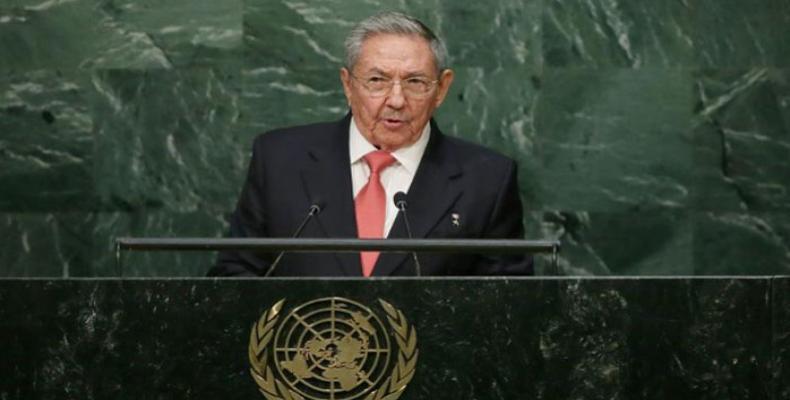New York, September 28 (RHC)-- Cuban President Raúl Castro said that the international community can always count on Cuba to raise its voice against injustice, inequality, underdevelopment, discrimination and manipulation, and for the establishment of a more equitable and fair international order that focuses on the human being, his dignity and wellbeing.
In his remarks Monday during the General Debate of the 70th Session of the UN General Assembly, in New York, President Raúl Castro recalled that when UN member states signed the UN Charter seventy years ago, they pledged to preserve future generations from the scourge of war, and to build a new type of relationship guided by a set of principles and purposes that should bring about an era of peace, justice and development for all of humanity.
The Cuban head of state said that today's militarization of cyberspace and the covert and illegal use of information and communications technologies to attack other States is unacceptable.
“Despite the fact that the UN Charter calls to reaffirm faith in fundamental human rights, in the dignity and worth of the human person, humanity is denied the right to live in peace, and the right to development.
The Cuban president then highlighted the Proclamation of Latin America and the Caribbean as a Zone of Peace, which he said shows that states can move beyond their differences toward unity and the achievement of common goals, while respecting their diversity.
The Cuban head of state reaffirmed Cuba's full solidarity with the Bolivarian Republic of Venezuela, as well as Cuba's unwavering support for just causes around the world.
During his speech at the UN General Assembly on Monday, President Raúl Castro also said Cuba welcomes the nuclear agreement reached between the Islamic Republic of Iran and the P-5 plus 1 group.
He called on Europe to take up full and immediate responsibility for the human crisis that it helped generate in countries of the Middle East and North Africa.


